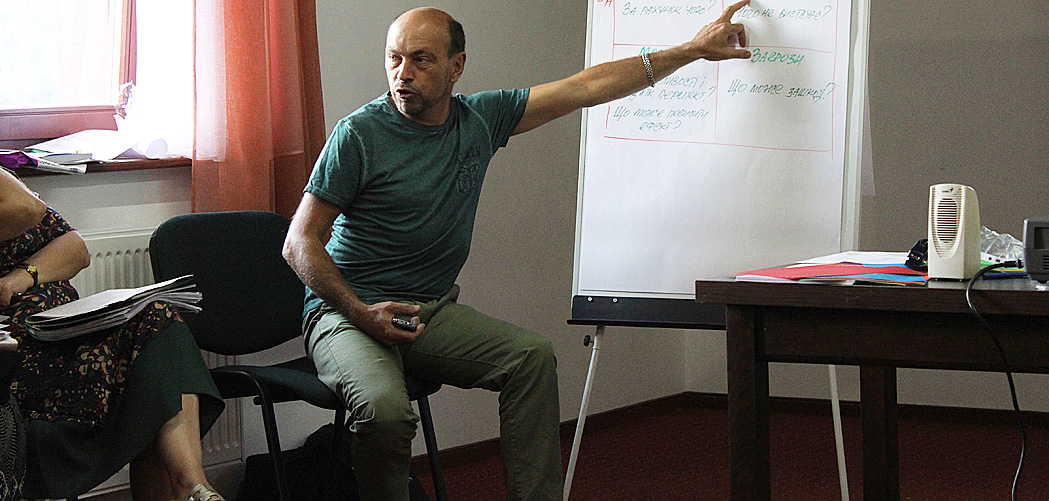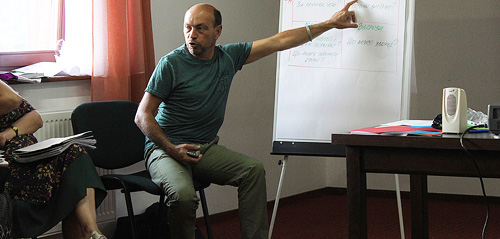Three Ukrainian Teacher’s Guides Now Online


(Education expert Oleksandr Voytenko at the Teaching with Testimony follow-up session in Ukraine, August 2014)
Educators can now access three of USC Shoah Foundation’s Ukrainian-language lesson guides and modules for free on the USC Shoah Foundation website. Each lesson includes everything teachers need including testimony and film clips.
Pain of Memory is a three-part module that accompanied the Holocaust by Bullets: Mass Shootings of Jews in Ukraine 1941-1944 traveling exhibit from 2007. Presented by the Victor Pinchuk Foundation in partnership with Mémorial de la Shoah, Yahad-In Unum, and the Ukrainian Embassies of Israel, France, Germany, and the United States, the exhibition is based on the work of Yahad-In Unum and its President, Father Patrick Desbois. Yahad-In Unum conducts research and documentation of mass shootings that took place in Ukraine, Belarus, and Poland; the organization has collected testimony from more than 2,000 witnesses to these massacres and identified hundreds of mass graves, many of which were previously unknown.
Pain of Memory was developed in 2011 by Oleksandr Voytenko, one of the leading Ukrainian educators on the subjects of human rights and tolerance. He designed Pain of Memory to address such topics as historical memory, moral choice in critical situations, xenophobia, and discrimination. It is suited for use in secondary-school history classes and university courses as well as specialized civics courses and extracurricular programs. While Pain of Memory is designed to support the educational use of the “Shoah by Bullets” exhibition, it is intended for use as a standalone resource as well. In addition to testimony collected by Yahad-In Unum, the kit incorporates testimony from the USC Shoah Foundation Institute’s Visual History Archive.
Famine in Ukraine 1932-1933: The Human Dimension of the Tragedy uses testimony to illustrate both the general history of the famine and the personal stories of survivors who lived through it. It includes testimony clips, historical documents, literary works and a step-by-step lesson plan for educators. It was approved for use in secondary schools by the Ukraine Ministry of Education and Science. In February 2010, USC Shoah Foundation led a training on Famine in Ukraine for 31 teachers in Ukraine.
Finally, Encountering Memory is a lesson guide that accompanies the USC Shoah Foundation-produced documentary Spell Your Name. Working with the guide, video clips and testimonies, teachers and students will develop skills of historical research and interpretation of complex, controversial historical events and understand the need to confront xenophobia and discrimination in today's world. Encountering Memory is composed of 11 lessons, each covering a different theme, including “How could the Holocaust happen?” “How can a person confront genocide?” and “Totalitarianism.” It was also written by Oleksandr and Mikhail Voytenko and funded by the Victor Pinchuk Foundation.
Like this article? Get our e-newsletter.
Be the first to learn about new articles and personal stories like the one you've just read.